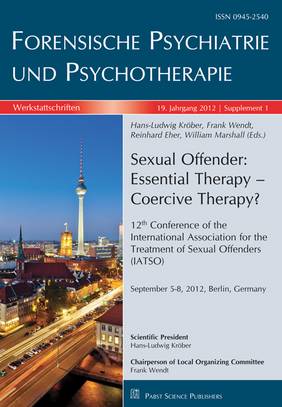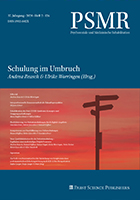"The high oxytocin levels we have found in one third of our population were also present in the subpopulation of sex offenders. This has implications for future (treatment) research", J.A. Troelstra and W.J. Smid (Utrecht/NL) report (in Forensische Psychiatrie und Psychotherapie, Supplement 1/2012).
"Several types of medication and illicit drugs are known to influence oxytocin levels. For instance ecstasy raises oxytocin levels. A high oxytocin level suppresses the release of stress hormone cortisol. When this is already present at a young age this lessens the stress and fear reactions that promote social adjustment and the ability to learn from punishment and mistakes. Preventing XTC use in young sex offenders might help treatment results.
There are also genetic factors that might influence baseline oxytocin levels or the actual effect of baseline oxytocin levels on behavior. For instance, CD38, a glycoprotein, has an enhancing effect on oxytocin levels.
The current findings show that increasing oxytocin levels may not be the solution to combating antisocial/criminal behaviour in serious offenders. Indeed, reducing oxytocin levels may even be indicated in some cases."
Forensische Psychiatrie und Psychotherapie 2012-Supplement 1






















